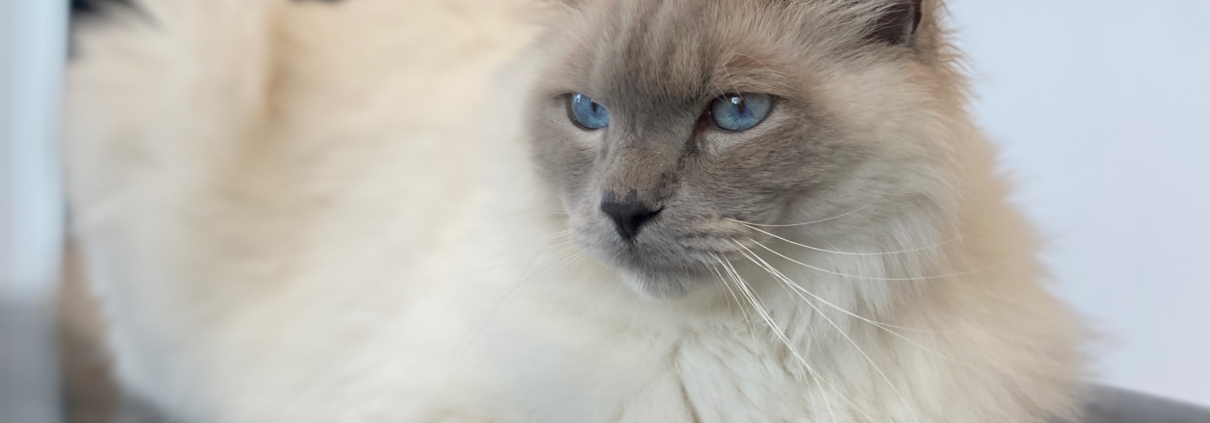
During a health check, we thoroughly examine your cat.
We inspect the mouth and teeth, checking for any dental issues and assessing if you should start brushing your cat’s teeth or if a dental cleaning is needed. There are many steps you can take to improve your cat’s oral hygiene.
We go over the coat. Is it shiny and glossy? Depending on the season, we discuss the need for preventive treatment against fleas and ticks.
What is the cat being fed? Is digestion normal? We assess if the cat’s weight is healthy. Many cats, especially indoor cats, are unfortunately overweight, but there is much you can do as an owner to help your cat achieve a healthy weight.
We listen to the heart and lungs. Many heart issues are detected during the annual health check when the vet listens to the cat’s heart with a stethoscope.
We also discuss any need for deworming treatment.
Vaccinations
Here are the main diseases that cats are typically vaccinated against:
Core vaccines (recommended for all cats)
Feline Panleukopenia (feline panleukopenia virus – FPV)
What is it? Feline panleukopenia is a very serious viral disease that attacks the cat’s immune system and intestines. It’s a form of “cat flu,” but much more dangerous, especially for young kittens.
Symptoms: Fever, vomiting, diarrhea, and dehydration. It can be fatal, especially for young or unvaccinated cats
Vaccination: This is one of the most important vaccines due to the disease’s severity and prevalence.
Feline Herpesvirus (feline herpesvirus – FHV) and Feline Calicivirus (FCV)
What is it? These two viral infections cause “cat flu” and are highly contagious. They attack the cat’s respiratory system and can lead to severe breathing issues.
Symptoms: Sneezing, eye and nasal discharge, fever, and loss of appetite. Some cats may develop chronic respiratory problems.
Vaccination: The vaccine protects against both viruses and is essential to prevent both acute and chronic illnesses.
Rabies
What is it? Rabies is a deadly viral disease that can be transmitted to humans and other animals. It attacks the nervous system and is always fatal once symptoms appear.
Symptoms: Altered behaviour, aggression, drooling, paralysis, and death.
Vaccination: The rabies vaccine is mandatory in many countries and often required if the cat is to travel. It’s important for both the cat’s safety and preventing transmission to humans.
Optional Vaccines (based on lifestyle
Chlamydia (Chlamydophila felis)
What is it? Chlamydia is a bacterial infection that causes eye inflammation and can spread to the respiratory system. It is especially contagious among cats living closely together, such as in catteries.
Symptoms: Red, watery eyes and conjunctivitis (eye inflammation).
Vaccination: This vaccine is often recommended for cats living in groups or catteries where the risk of infection is high.
Feline Leukemia Virus (FeLV)
What is it? FeLV is a serious viral disease that weakens the cat’s immune system and can lead to leukemia or other cancers. It can also cause infections due to the weakened immune system.
Symptoms: Fatigue, weight loss, fever, and other signs of immune suppression. Many cats die from secondary infections.
Vaccination: This vaccine is especially important for cats that go outdoors and may come into contact with other cats, as the infection spreads through close contact.
We recommend vaccinating both indoor and outdoor cats. An indoor cat can still be exposed to infections through humans and other animals that enter the home.
